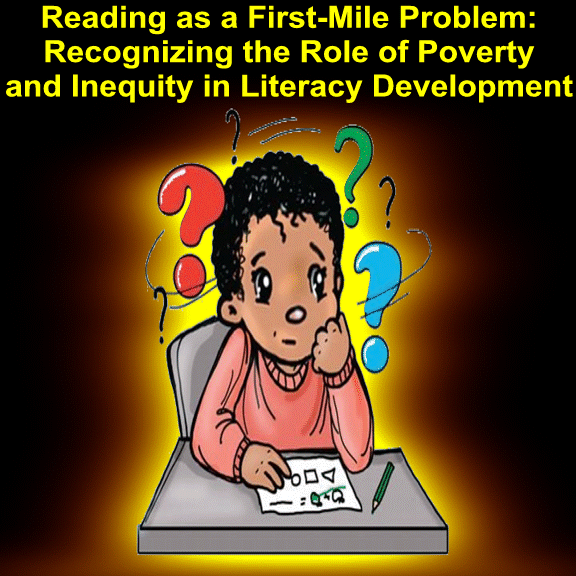Reading as a First-Mile Problem: Recognizing the Role of Poverty and Inequity in Literacy Development
Literacy scholar Tim Shanahan answers the question Why Is It So Hard to Improve Reading Achievement? with the following: “Classroom implementation is the last mile in reading reform.” He eventually adds, “The last mile rhetoric shouldn’t be a hair-on-fire message, but one that acknowledges both the current successes and the need to do better.”
Shanahan’s consideration of the persistent public and political concern over low reading achievement appears to offer a balanced admission that many approaches to reading instruction can be successful, but framing reading as a last-mile problem is finding yourself in a hole and deciding you just need to dig a little deeper.
Shanahan seems to accept a number of different “levers” as valid approaches to improving student reading, including a somewhat veiled endorsement of Common Core standards; in fact, he concedes: “Let’s face it. Our problem in reading isn’t that nothing works. It’s that everything does.”
In 2020, what Shanahan’s last-mile argument reveals, however, is that there is a mistake in teaching reading that can be addressed, but as a society, we refuse to acknowledge that reading is a first-mile problem.
That first mile is much larger than formal schooling, and what we refuse to CONTINUE READING: Reading as a First-Mile Problem: Recognizing the Role of Poverty and Inequity in Literacy Development – radical eyes for equity

